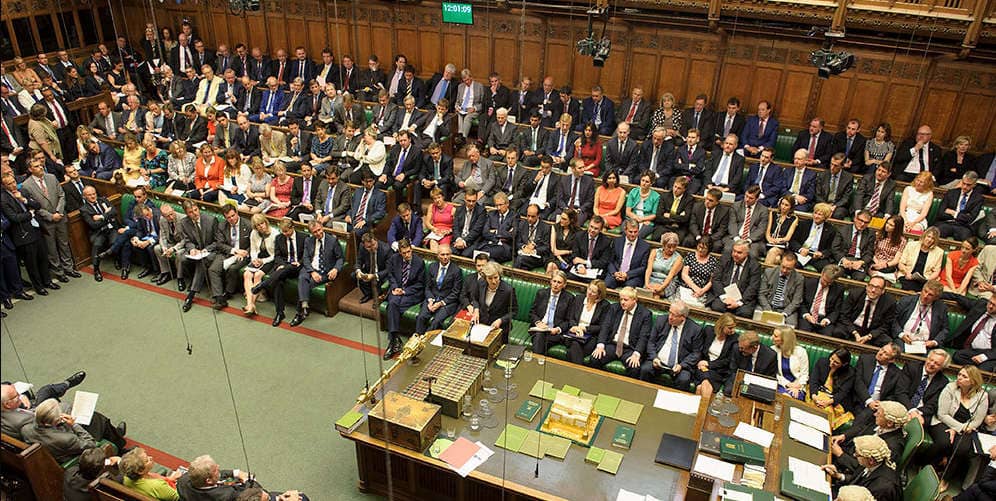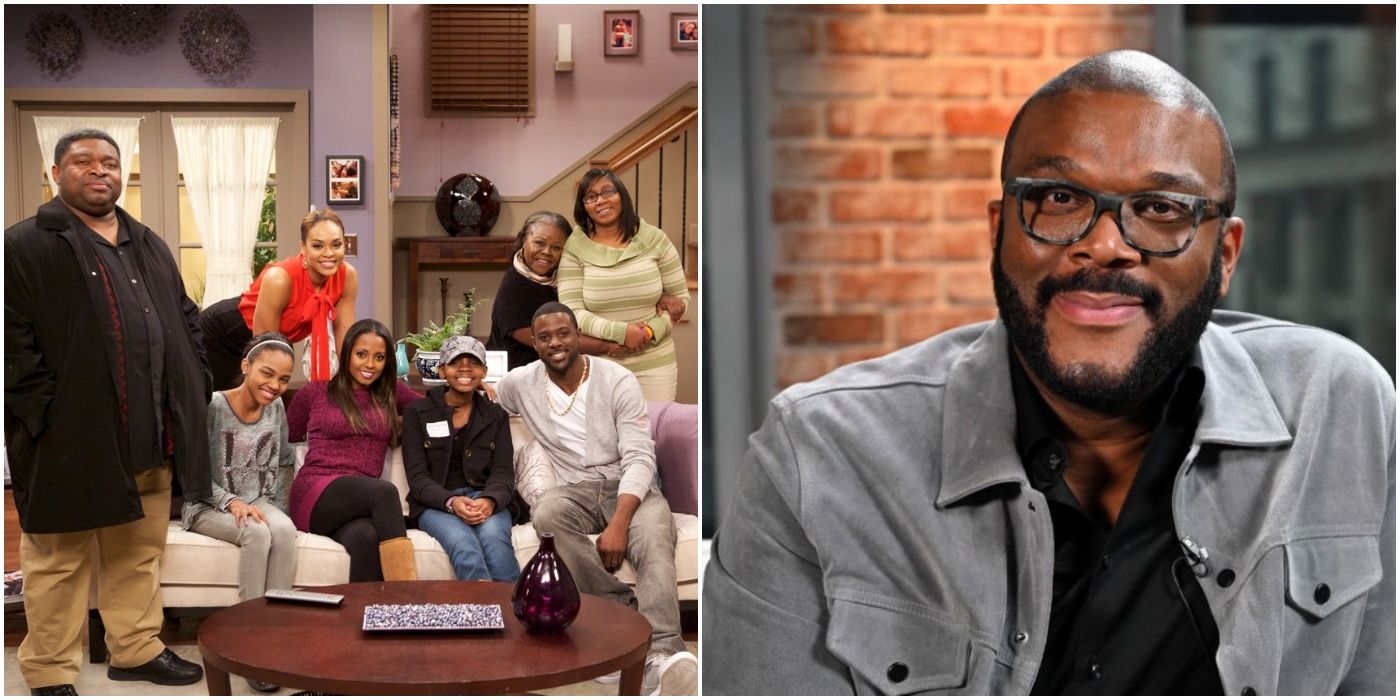Table Of Content

A member is also traditionally allowed some leeway if the interests of her/his constituency are adversely affected. In some circumstances, however, parties announce "free votes," allowing Members to vote as they please. At the beginning of each new parliamentary term, the House of Commons elects one of its members as a presiding officer, known as the Speaker. If the incumbent Speaker seeks a new term, then the house may re-elect them merely by passing a motion; otherwise, a secret ballot is held.
h to mid-19th century
Another officer of the house is the Serjeant-at-arms, whose duties include the maintenance of law, order, and security on the house's premises. The Serjeant-at-Arms carries the ceremonial mace, a symbol of the authority of the Crown and of the House of Commons, into the house each day before the Speaker, and the mace is laid upon the table of the house during sittings. The Librarian is head of the House of Commons Library, the house's research and information arm. Whilst presiding, the Speaker or Deputy Speaker traditionally wears ceremonial dress. The presiding officer may also wear a wig, but this tradition was abandoned by Speaker Betty Boothroyd.

The business of the House
In addition to maintaining discipline, the speakers must ensure that debate proceeds smoothly. If they find that a member is making irrelevant remarks, is tediously repetitive, or is otherwise attempting to delay proceedings, they may order the member to end the speech. The legislation is intended to overcome the objections of the Supreme Court by forcing judges to regard Rwanda as a safe country for asylum seekers and allowing ministers to ignore emergency injunctions from the European Court of Human Rights. The prime minister’s plan was finally given the green light in the evening after the House of Lords gave up their fight with the House of Commons over amending the legislation. Watch as Rishi Sunak’s controversial Rwanda bill faced a final parliamentary showdown on Monday, 22 April. But it has faced numerous delays amid threats of rebellion from Tory backbenchers - some of them landlords - who said they feared ending Section 21s would see the courts overwhelmed with more complex eviction cases.
Notable elections
In some circumstances, however, parties announce "free votes", allowing members to vote as they please. Votes relating to issues of conscience such as abortion and capital punishment are typically free votes. All legislation must be passed by the House of Commons to become law and it controls taxation and the supply of money to the government. Government ministers (including the Prime Minister) must regularly answer questions in the House of Commons and there are a number of select committees that scrutinise particular issues and the workings of the government. There are also mechanisms that allow members of the House of Commons to bring to the attention of the government particular issues affecting their constituents.
A lengthy sitting of the House saw Michael Martin first proposed, then each of the other candidates proposed in turn as amendments, which were all voted down. After the incumbent speaker, Douglas Clifton Brown, retired at the 1951 general election, there was a great demand from the Labour Party for Major James Milner to become the first Labour speaker after he had served as deputy speaker for eight years. However, the Conservatives (who had just regained power) nominated William Shepherd Morrison against him. The vote came after the prime minister blamed Labour opposition to the plan for the delay, although his own government had not taken earlier opportunities to rush the legislation through parliament. Acts passed in 1921 and 1925 granted the Church of Scotland complete independence in ecclesiastical matters. From 1973 to 2020, under membership of the European Community and European Union, parliament agreed to the position that European law would apply and be enforceable in Britain and that Britain would be subject to the rulings of the European Court of Justice.
Women in Politics and Public Life - House of Commons Library - Commons Library
Women in Politics and Public Life - House of Commons Library.
Posted: Wed, 06 Mar 2024 08:00:00 GMT [source]
Rwanda bill clears parliament after peers abandon final battle over safety amendment – as it happened
This 12-acre lagoon is peaceful due to its lack of surf, which makes it the ideal place to relax. There, you can walk along paved pathways and enjoy views of the harbor and planes leaving LAX. You’re also not far from world-renowned beaches, including Playa Del Rey, Santa Monica Pier and Beach, as well as Venice Beach. If you want to indulge in a little retail therapy, Rodeo Drive is the place for you. There’s everything from Wolfgang Puck’s renowned Spago to places for hot dog lovers like Vicious Dogs and Pinks.
More Sky Sites
In the House of Lords, the Committee of the Whole House or the Grand Committee are used. Each consists of all members of the House; the latter operates under special procedures, and is used only for uncontroversial bills. In the House of Commons, the bill is usually committed to a Public Bill Committee, consisting of between 16 and 50 members, but the Committee of the Whole House is used for important legislation. Several other types of committees, including Select Committees, may be used, but rarely.
House of Commons of England
If one House passes amendments that the other will not agree to, and the two Houses cannot resolve their disagreements, the bill will normally fail. Prior to July 2006, the House of Lords was presided over by a Lord Chancellor (a Cabinet member), whose influence as Speaker was very limited (whilst the powers belonging to the Speaker of the House of Commons are vast). However, as part of the Constitutional Reform Act 2005, the position of Speaker of the House of Lords (as it is termed in the Act) was separated from the office of Lord Chancellor (the office which has control over the judiciary as a whole), though the Lords remain largely self-governing. Decisions on points of order and on the disciplining of unruly members are made by the whole body, but by the Speaker alone in the Lower House. Speeches in the House of Lords are addressed to the House as a whole (using the words "My Lords"), but those in the House of Commons are addressed to the Speaker alone (using "Mr Speaker" or "Madam Speaker"). Using the result as a mandate, the Liberal Prime Minister, H. H. Asquith, introduced the Parliament Bill, which sought to restrict the powers of the House of Lords.
Once each House formally sends its reply to the Speech, legislative business may commence, appointing committees, electing officers, passing resolutions and considering legislation. Royal assent of the Monarch is required for all Bills to become law, and certain delegated legislation must be made by the Monarch by Order in Council. The Crown also has executive powers which do not depend on Parliament, through prerogative powers, including the power to make treaties, declare war, award honours, and appoint officers and civil servants. In practice these are always exercised by the monarch on the advice of the Prime Minister and the other ministers of HM Government. The Prime Minister and government are directly accountable to Parliament, through its control of public finances, and to the public, through the election of members of parliament.
It shares with the House of Lords the functions of scrutinising the actions of government and examining and approving proposed legislation, but it alone can authorise government expenditure. It has legislative priority in the sense that it cannot be overruled by the House of Lords. The conduct of its business is governed by rules and conventions that usually serve to facilitate the conduct of government, and is carried out by elected Members of Parliament with the support of an administrative staff. The chief officer of the House of Commons is "the Speaker", who chairs its debates, enforces its rules and acts as its spokesman. The Speaker also chairs the "House of Commons Commission", which employs its administrative staff and directs its administrative departments. The presiding officer may also wear a wig, but this tradition has been abandoned by the present Speaker, Michael Martin, and by his predecessor, Betty Boothroyd.
The membership of the House of Commons stood at 658 from 1801—when Great Britain and Ireland were united by the Act of Union to form the United Kingdom—until 1885, when it was increased to 670. At the general election in May 2010, 650 members were returned—533 from England, 59 from Scotland, 40 from Wales, and 18 from Northern Ireland. House of Commons, popularly elected legislative body of the bicameral British Parliament. Although it is technically the lower house, the House of Commons is predominant over the House of Lords, and the name “Parliament” is often used to refer to the House of Commons alone.
Other amendments can technically be proposed, but in practice have no chance of success unless the parties in the House are closely divided. The existence of a devolved Scottish Parliament means that while Westminster MPs from Scotland may vote directly on matters that affect English constituencies, they may not have much power over their laws affecting their own constituency. Any Act of the Scottish Parliament may be overturned, amended or ignored by Westminster under section 35 of the Scotland Act 1998, and this happened for the first time in January 2023, when the Gender Recognition Reform (Scotland) Bill was prohibited from receiving royal assent. Legislative Consent Motions enables the UK Parliament to vote on issues normally devolved to Scotland, Wales or Northern Ireland, as part of United Kingdom legislation. The tradition that a bill must be read three times in the Commons (and also in the Lords) before it can be voted on is based on the need to allow members adequate time to investigate the principles on which the bill is based and the details of its provisions. The first reading is purely formal, but the second reading provides the occasion for debate on the principles involved.
The Speaker is Chairman of the House of Commons Commission, which oversees the running of the House, and controls debates by calling on Members to speak. If a Member believes that a rule (or Standing Order) has been breached, he or she may raise a "point of order," on which the Speaker makes a ruling that is not subject to any appeal. Thus, the Speaker is far more powerful than his Lords counterpart, the Lord Speaker, who has no disciplinary powers at all. Customarily, the Speaker and the Deputy Speakers are non-partisan; they do not vote, or participate in the affairs of any political party. By convention, a Speaker seeking re-election is not opposed in his or her constituency by any of the major parties.

No comments:
Post a Comment